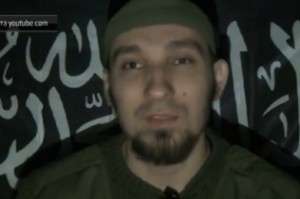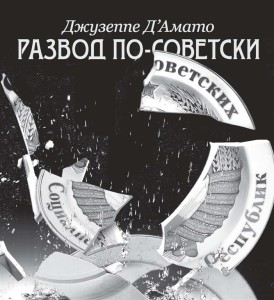Turning points: Syria and the Russian diplomacy. Stalingrad syndrome.
“Damascus is the “Stalingrad” of Russian diplomacy. After years of geopolitical withdrawal, Moscow has chosen Syria as a way to revive its image of power in the world. “Not one step back” is the Kremlin’s new strategy, as it was for the Red Army along the banks of the Volga river during World War II. To be more convincing, the Kremlin has simultaneously flexed its muscles by supplying sophisticated […]
Lithuania adopts the euro.
1 Jan 2014 Lithuania is the 19th European state to adopt the continental currency. 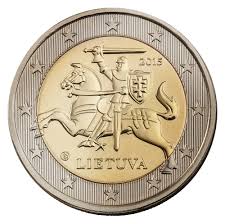 The euro gives the country more freedom in negotiating business with Russia, said Valdas Adamkus, who was president of Lithuania for about a decade until 2009. It provides an extra measure of geopolitical security.
The euro gives the country more freedom in negotiating business with Russia, said Valdas Adamkus, who was president of Lithuania for about a decade until 2009. It provides an extra measure of geopolitical security.
At 0.4 percent, its inflation rate is just a hair above the euro zone average of 0.3 percent, and its 9.5 percent unemployment rate is right in the middle of the pack, and comfortably below the zone average of 11.5 percent. Lithuania’s 1.3 percent real GDP growth rate beats both of its Baltic partners and is again well above the -2.2 percent Euro Zone average.
Ловушка для русских националистов.
31 Dec 2013Предполагаемый террорист Печенкин, как и другие этнически русские террористы (их много, спросите у изучавших вопрос людей), — лакмусовая бумажка для тех, кто говорит, что любит Россию.
И одновременно утверждает: терроризм присущ определенным народам, населяющим нашу страну, и представителям определенной религии — ислама.
Любой верующий мусульманин вам скажет (если вы его спросите, конечно), что террористы, ваххабиты-экстремисты — не мусульмане, что он не считает их таковыми.
Нет худшего врага для мусульманина. Чтобы было понятно — это как сектант, насилующий детей или приносящий кровавые жертвы, для верующего христианина. Мусульмане боятся террористов так же, как все. И гибнут от них так же, как все, — бомбы не выбирают. Так что формулу мусульманин = террорист может применять либо дурак, либо подлец.
Но вернемся к русским националистам.
Они категорически отвергают утверждение, что терроризм не имеет национальности.
Больше того, “этническая принадлежность” терроризма — одна из основ насаждаемой ими среди россиян (увы, небезуспешно) идеологии.
Имеет национальность! — говорят они, и добавляют: кавказскую.
И вот, по данным следствия, людей массово убивает этнический русский.
Да и если кто помнит, убитый муж предыдущей смертницы в Волгограде, который привел ее в террористическое подполье, где из нее после “изготовили” смертницу, был этническим русским. Но тогда это как-то предпочли не заметить. Теперь придется. Хотя лично мне безразлично, “этнически кто” убивает людей — представитель Кавказа, русский, полурусский, татарин, полутатарин, да хоть зулус. Террорист — оборотень, нелюдь.
Но вам-то, националисты, это всегда было подчеркнуто НЕ все равно.
И вдруг — такая ловушка, из которой не выкрутиться.
Если вы говорите, что террорист Печенкин — предатель нации, выродок, что он не русский, потому что пошел в террористы, то я с вами согласен.
Он не русский — он преступник.
Но тогда — следите за руками (своими) — вы автоматически соглашаетесь с тем, что и другие террористы, став таковыми, становятся выродками и теряют национальность.
Они, как этот Печенкин, преступник — и точка.
Всегда считал, что русский национал-шовинизм — слишком жидкая и слишком коричневая субстанция; в ней так много замешано просто быдлячей ненависти, что для серьезного идеологического фундамента она не годится.
Ну, вот и ткнул вас носом в эту адову смесь террорист Печенкин.
Кстати, в том, что он и ему подобные появились, множатся и плодятся, есть и наша общая, и ваша конкретная — националистическая вина.
Вы, националисты, — кто невольно, а кто намеренно – уводите страну от реального решения проблемы экстремизма и терроризма.
Выяснением национальной “чистоты” (несусветная дурь в XXI веке) вы отвлекаете общество от обсуждения сущностных вещей, которые способствуют терроризму. Вы, националисты, — вольно или невольно — помогаете власти уходить от ответственности перед обществом.
Пока граждане России яростно выясняют, у кого какой процент русской-нерусской крови, и как нерусская кровь “мешает нам жить”, — там, за высокой стеной, будут спать спокойно.
А с внешней стороны стены продолжат рвать нас на части. Как в прямом, так и в переносном смысле.
P.S. От меня и всех членов моей семьи — глубокие соболезнования жертвам терактов, пожелания выздоровления — выжившим.
Перед ними виноваты мы все, в том числе и я лично, хотя бы просто тем фактом, что мы здесь живем — и ничего, пьем, болтаем, едим, когда другим людям и жить не хочется…
Blog – Ayder Muzhdabaev – Айдер Муждабаев – Facebook –
La scelta degli strateghi della tensione non è affatto casuale. Primo: insieme a Rostov sul Don, Volgogrado è uno strategico crocevia ferroviario ed autostradale. Non è un caso che, durante la Seconda guerra mondiale, Hitler avesse inviato le proprie forze migliori per conquistare questa città, allora denominata Stalingrado, nodo di collegamento tra il Caucaso settentrionale e la steppa. 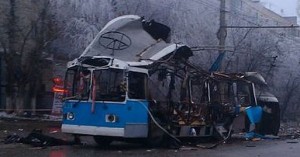
Secondo: i terroristi colpiscono duramente il sempre più aggressivo nazionalismo russo, che utilizza la vittoria di settanta anni fa in riva al Volga per cementare le proprie fondamenta. Terzo: i mandanti dell’attentato inviano un chiaro avvertimento al Cremlino. Ossia “possiamo beccarvi anche fuori dal Caucaso, dove vogliamo”.
Quarto: i terroristi seminano il panico tra la popolazione come nel tragico autunno 1999 al tempo del passaggio di poteri tra Eltsin e Putin. Per lunghe ore gli inquirenti federali ci hanno raccontato che le ultime azioni terroristiche sono state opera dalle solite disperate “vedove – kamikaze” dalla capigliatura scura, che vanno in giro coperte dai veli. Insomma gente facilmente riconoscibile.
Ora viene fuori che gli attentatori erano in realtà uomini con la fisionomia slava. La notizia, non più celabile, ha portato scompiglio. Il nemico si annida fra noi, è oggi il pensiero del russo medio.
Il rischio palese è che, comunque, si levi una nuova ondata xenofoba anti-straniero o anti-tutto quello che non sia evidentemente slavo. Nei mesi scorsi dalle complesse province essa ha addirittura raggiunto Mosca con uno spaventoso assalto contro gli insediamenti dei caucasici e degli asiatici in un quartiere periferico della capitale.
Ma l’obiettivo vero della presente strategia della tensione è stato dichiarato nell’estate scorsa da uno dei capi degli estremisti, Doku Umarov. I terroristi intendono far andare di traverso al presidente Vladimir Putin le Olimpiadi invernali di Sochi, in programma dal 7 febbraio prossimo. Questi giochi sportivi sono considerati dai nemici del Cremlino come la “vetrina del regime”.
L’attenzione del mondo intero si concentrerà in quelle due settimane sulla Russia. Un’occasione migliore per dimostrare che il separatismo ed il radicalismo sono ancora vivi, dopo le pesanti sconfitte degli ultimi anni, non potrebbe esserci.
Putin ne è ben conscio. Questa è la ragione delle incredibili misure di sicurezza che atleti, tifosi ed addetti ai lavori dovranno sottoporsi a Sochi. Interminabili ore di coda per il controllo documenti serviranno per raggiungere la sede delle gare. Secondo alcune indiscrezioni vi sarà un poliziotto ogni due visitatori. All’apparenza le prossime Olimpiadi invernali non paiono essere granché una festa. .
Nelle ultime due settimane Vladimir Putin ha mostrato il suo volto migliore, quello di leader illuminato, liberando i cosiddetti “prigionieri politici”, tra cui l’odiatissimo oligarca Khodorkovskij.
Adesso, a Volgogrado, i terroristi gli rispondono a modo loro, provocandolo. Vogliono che lo “zar buono” dei russi tiri fuori gli artigli.
gda
Россия: Информационный террор.
30 Dec 2013Ни совести, ни чувства меры, ни элементарного такта. Все — на алтарь пропаганды во имя власти.
Всего за 10-15 минут эфира на госканале, которые я смог посмотреть (потом стало тошно), дикторы раз десять рефреном повторили: жертв могло быть больше, больше, больше… — если бы не сотрудники МВД, помешавшие террористке пройти дальше в волгоградский вокзал. 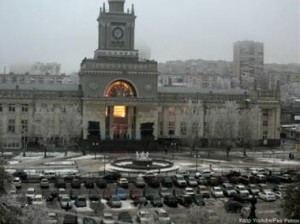
По-моему, расставлять таким образом акценты в освещении теракта — хуже, чем ложь, это полуправда. Так, прячась за спинами настоящих героев, простых полицейских, власть устами своих информ-слуг делает две полезные себе вещи:
1. Сразу сообщает, что если бы не доблестные силовики, конец нам всем пришел бы, везде были бы теракты.
2. Сразу уводит общество от вопроса: а что вы, горе-силовики, начальники этих героев, сделали, чтобы бороться с терроризмом системно, а не при входе на вокзалы?
Но погодите, это только начало. Теперь начнется обычное: это чеченцы, кавказцы, даги — враги, чуждые нам культурно; «хватит кормить Кавказ» и прочее.
Чтобы широким народным массам и в голову не пришло задуматься — а зачем нужна такая власть, которая ничего, кроме как жестко прессовать безобидную оппозицию, не умеет?
Отсутствие безопасности граждан, импотенция власти в отношении реальных угроз — все это сейчас должно быть тщательно заболтано, замаскировано.
Ведь «Pissy riot» у нас главное зло? Да, конечно. А еще геи.
Blog – Ayder Muzhdabaev – Айдер Муждабаев – Facebook –
Russia: i misteri dell’amnistia.
30 Dec 2013Il potere dei Giochi olimpici! In un colpo solo Vladimir Putin elimina tutti i problemi connessi con i “prigionieri politici”, come vengono chiamati dall’opposizione i vari Khodorkovsky, Pussy Riots, i manifestanti anti-Cremlino del Bolotnoe del maggio 2012. 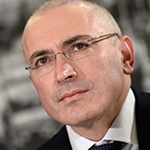
Nemmeno il più bravo analista del leader russo avrebbe potuto immaginare scelte tanto audaci.
La dinamica della liberazione di Michail Khodorkovsky è roba da gialli sulle spie della Guerra Fredda. Nell’arco di meno di ventiquattro ore dall’annuncio della grazia concessa dal Cremlino, l’ex oligarca è stato di fatto sparire dalla colonia penale in Carelia, mentre decine di giornalisti lo attendevano all’esterno. Poi, con in mano il passaporto per l’estero – con tanto di visto tedesco sopra -, è stato messo di corsa su un aeroplano e spedito, come fanno di solito i bravi figli, dalla mamma ammalata.
Tanti, forse troppi, sono i misteri che avvolgono questo clamoroso “lieto fine” nel giorno in cui la Russia celebra la giornata dei “cecchisti”, ossia degli uomini dei “servizi”, l’ex Kgb. Il primo: Khodorkovsky ha scritto la lettera per la grazia in piena libertà? Il secondo: quali sono le vere condizioni per il rilascio? Il terzo: è vero che le autorità giudiziarie avevano nuovi documenti per iniziare il terzo procedimento contro di lui?
L’averlo messo su un aereo e mandato all’estero significa che l’ex oligarca probabilmente non tornerà più in Patria a breve. Putin non vuole farsi rubare la scena proprio ora.
Adesso che al Cremlino intonano la versione nazionale della canzone napoletana “Chi ha avuto, ha avuto! Scordiamoci il passato”, come si fa ad accusare Putin di essere un autocrate, se non un “tiranno” come gridava l’opposizione in piazza soltanto venti mesi fa?
L’ex ufficiale del Kgb indossa oggi i panni dello “zar illuminato”, del “padre buono” che protegge la sua famiglia dai pericoli della società moderna, dai valori non tradizionali in arrivo dall’Occidente.
E con questi panni, freschi di lavanderia, si appresta a fare le veci del padrone di casa all’edizione invernale dei Giochi olimpici, un evento atteso in Russia da decenni. Il precedente moscovita del 1980, con il boicottaggio occidentale per l’intervento in Afghanistan ai tempi di Brezhnev, brucia ancora sulla pelle delle generazioni più anziane.
Ecco la ragione di tali scelte sullo scenario interno, associate con il rilancio dell’immagine del Paese sulla scena internazionale: leggasi Siria, Iran, Ucraina.
A Mosca i dissidenti e l’opposizione sono contenti per la fine dei tanti casi “politici”, Khodorkovsky su tutti.
Презентация книги «Развод по-советски». Русское издание
Состоится
Четверг – 19-го декабря в 11.30
при новой резиденции щвейцарского посла
125009 г. МОСКВА, МАЛЫЙ КИСЛОВСКИЙ ПЕР., Д.5А/8, СТР. 1
Putin: Russia moralizzatrice del mondo.
18 Dec 2013La Russia come bastione del conservatorismo mondiale, a difesa della morale messa in crisi dalla “tolleranza, asessuata e sterile dell’Occidente”, in cui “il bene ed il male vengono confusi”. 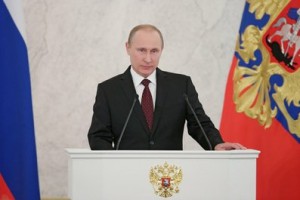
Questa la nuova missione dell’ex superpotenza secondo Vladimir Putin. Dopo aver fermato Gengis Khan, Napoleone ed Hitler adesso è venuto il momento di salvare l’umanità da quest’ultima deriva.
Il capo del Cremlino ce l’ha sia con i cambiamenti nelle società sia con i nuovi equilibri globali, che vedono una Russia sempre meno protagonista e più isolata.
Il primo aspetto è quello riguardante i valori tradizionali. A poche settimane dalla tanto attesa (dal potere moscovita) “vetrina” delle Olimpiadi invernali di Sochi, Putin il “macho” non ha digerito la campagna-stampa occidentale che ha evidenziato l’intolleranza dilagante contro le minoranze sessuali, gli stranieri, i “diversi”.
Sono soprattutto i mass media federali a fomentare, irresponsabilmente, sentimenti, che, in un Paese multi-etnico e multi-confessionale, rischiano di dar fuoco alla “Santa Barbara” della già complessa convivenza pacifica tra genti così differenti.
Le ragioni della propaganda dell’insofferenza sono semplici. La crisi economica avanza rapidamente e non si sa quali conseguenze avrà sul Paese. Senza un nemico geopolitico, più o meno chiaro, e con un collante – un tempo sovietico – che tende a perdere forza, il potere si prepara a combattere una lunga battaglia dagli esiti incerti.
Il russo medio è sicuramente conservatore, ma certamente non bigotto. Indurlo a pensare che i gay di casa propria o gli immigrati (anche ex fratelli sovietici) siano agenti infiltrati di un oscuro nemico esterno aiuta, e non poco, a distogliere l’attenzione dalle questioni sociali irrisolte.
Il secondo aspetto del ragionamento del capo del Cremlino riguarda le nuove ideologie, spesso straniere, che in Africa ed in Medio Oriente hanno portato guerre e lutti. Il riferimento è sia allo scenario interno che a quello internazionale. Su quest’ultimo, onestamente, è difficile dargli torto. Si pensi al risultato delle “primavere arabe”. Mosca, perciò, si propone come garante dell’attuale status-quo.
Il punto saliente è, invero, sottaciuto: sulla scena internazionale la Russia si sente non considerata come potenza regionale quale è in realtà. Europa e Stati Uniti dovrebbero tranquillizzarla se essi sperano di averla dalla propria parte di fronte alle sfide del XXI secolo.
Il caso siriano pare essere già dimenticato: senza la mediazione russa Obama si sarebbe, forse, buttato in una ennesima disastrosa avventura.
Europa e Stati Uniti farebbero, però, anche bene a spiegare a Putin che una Russia finalmente democratica non avrebbe bisogno di certe manovre o missioni da svolgere.
gda
Читая мою смешанную российско-украинскую фейсбучную ленту, понимаю, что мы с украинцами живем не столько в разных мирах, сколько в разное время.
На Украине обсуждают гражданские протесты 2013 года с требованиями отставки правительства, президента, досрочных выборов и восстановления парламентской республики как системы власти.
В России обсуждают даже не «оттепель», а кино про «оттепель» полувековой давности.
Поэтому неудивительно, что наше общество (про власть и не говорю) раздражается, не понимая украинцев, вкладывая свой смысл в их слова и действия, — какого они сами не имеют в виду.
Это проще почувствовать, чем объяснить, и долго раскладывать по пунктам. Если примитивно и совсем коротко, то российское общество — как персонаж фантастического фильма, прилетевший на машине времени из недавнего прошлого: почти не отличается от окружающих внешне, но не может до конца врубиться в происходящее.
Простите, если вдруг кто-то обиделся, но я сам не украинец, россиянин. Ощутил это на себе и наблюдаю в беседах с соотечественниками.
Надо признать, что власти удалось нас подвесить во времени. И даже чуть отмотать.
Blog – Ayder Muzhdabaev – Айдер Муждабаев – Facebook –
Eastern Partnership, as one of the priorities of the Lithuanian Presidency of the Council of the EU, is a natural choice, determined by the Lithuanian and the EU interest to have safe, stable, economically strong and pro-European Eastern neighbours. Our goal is to have pro-active and efficient Eastern Partnership policy that would bring tangible results for these countries and their people. This could be achieved through the joint efforts of the EU institutions, EU Member States and Eastern Partners themselves. 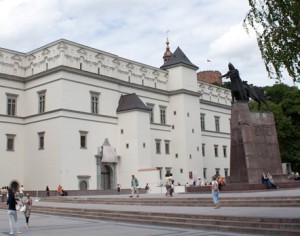
Through the Eastern Partnership, the EU strengthens its bilateral and multilateral cooperation with the six Eastern European partners: Armenia, Azerbaijan, Belarus, Georgia, Moldova and Ukraine, supports reform processes of these countries, and seeks to bring them closer to the EU.
Main results
Over the first four years of its implementation, Eastern Partnership initiative has brought a number of tangible results:
- Association Agreements, including Deep and Comprehensive Free Trade Areas, as their integral parts, have been negotiated with Ukraine, the Republic of Moldova, Georgia and Armenia; good progress has also been achieved in respective negotiations with Azerbaijan;
- considerable progress has been made in the area of visa facilitation and liberalization: 5 out of 6 partners already have or will soon have Visa Facilitation Agreements; 3 of them managed to advance even more – they now have Visa Liberalization Actions Plans, prepared specifically to them, full and effective implementation of which will bring these countries straight to the visa free travels with the EU;
- the multilateral cooperation dimension has been established and further strengthened: it now includes senior officials and experts working in a number of different areas, from agriculture and environment to trade, migration and CSDP;
- sectorial cooperation has also been enhanced, with the first Eastern partnership ministerial meetings in the fields of Justice and Home Affairs, and Transport, held in October 2013, in Luxembourg;
- cooperation between societies at large has been started and such formats as Civil Society Forum, Conference of the Regional and Local Authorities (CORLEAP), Business Forum and Youth Forum are now meeting on a regular basis, thus contributing to the monitoring of the implementation of the Eastern Partnership, but also to the policy shaping.
The third Eastern Partnership Summit in Vilnius
The third Eastern Partnership Summit in Vilnius will be held on the 28-29 November, 2013. The leaders and other high level representatives of the EU institutions, 28 EU Member States and the 6 Eastern European Partner States are expected to take part in the EaP Vilnius Summit. The event will be hosted by the President of the Republic of Lithuania Dalia Grybauskaitė and chaired by the President of the European Council Herman Van Rompuy.
Eastern Partnership Summits are held every two years (the first two Summits took place in the Czech Republic (Prague), 7 May, 2009, and in Poland (Warsaw), 29-30 September, 2011). During these meetings, the implementation and the results of the Eastern Partnership are discussed, the objectives for the next two years are determined and the prospects for the future are drawn.
Source: official site of the Summit
* * *
Joint statement by President of the European Council Herman Van Rompuy and President of the European Commission José Manuel Barroso on Ukraine
Concerning the Ukrainian decision to suspend temporarily the preparations for signing the Association Agreement and Deep and Comprehensive Free Trade Area (DCFTA), the European Union’s position remains clear. The offer of signing an unprecedented Association Agreement and a DCFTA is still on the table. This requires the necessary political will by the Ukrainian leadership, determined action and tangible progress on the conditions set out in December 2012.
Important progress has already been achieved by Ukraine. We are convinced that signing the Association Agreement and a DCFTA, the most ambitious agreement the European Union has ever offered, provides the best possible support for Ukraine’s economic situation, reform course and modernisation in view of building a prosperous and stable future for all Ukrainians. The EU stands ready to be more open and more supportive to those who are willing to engage in reforms and modernisation.
While being aware of the external pressure that Ukraine is experiencing, we believe that short term considerations should not override the long term benefits that this partnership would bring. However the European Union will not force Ukraine, or any other partner, to choose between the European Union or any other regional entity. It is up to Ukraine to freely decide what kind of engagement they seek with the European Union. Ukrainian citizens have again shown these last days that they fully understand and embrace the historic nature of the European association.
We therefore strongly disapprove of the Russian position and actions in this respect. The Association Agreement and a DCFTA are opportunities to accompany our common neighbours towards modern, prosperous and rule-based democracies. Stronger relations with the European Union do not come at the expense of relations between our Eastern partners and their other neighbours, such as Russia. The Eastern Partnership is conceived as a win-win where we all stand to gain. The European Union continues to stand ready to clarify to the Russian Federation the mutual beneficial impact of increased trade and exchanges with our neighbours, whilst fully respecting the sovereignty and independence of our Eastern Partners and the bilateral nature of Association Agreement and DCFTAs.
The European Union looks forward to the Eastern Partnership Summit in Vilnius this week. It will be an important moment to take stock of the situation and take forward the relations with our Eastern partners.
La battaglia è probabilmente finita. L’ultima incognita è legata alla tradizionale imprevedibilità degli ucraini. Ma se dovesse andare proprio in questo modo il processo di integrazione europea ad Est, nelle terre un tempo ex sovietiche, segnerebbe una brusca frenata.
Le pressioni del Cremlino sulla repubblica ex sorella hanno avuto, pertanto per ora, la meglio. Nei mesi scorsi la Russia ha iniziato a far capire a quali conseguenze spaventose l’Ucraina sarebbe andata incontro se Kiev avesse legato il suo destino all’Ue.
Mosca non intende avere concorrenti all’interno del suo “cortile di casa” è la lezione appresa in questi giorni tesissimi dai funzionari europei.
A nulla è valsa la dichiarazione al vetriolo della cancelliera tedesca Merkel, che ha ricordato a Vladimir Putin, che la “Guerra Fredda è finita da 24 anni” e che ogni Paese è sovrano di decidere la sua politica.
Il presidente Janukovich è stato posto davanti alla scelta tra il Patto Associativo con l’Ue e la concorrente nascente Unione Doganale, una specie di Urss economica. Il primo è un ottimo investimento sul futuro con vantaggi enormi nel lungo periodo. La seconda è un rattoppo utile nel breve periodo, ma un progetto troppo ambizioso che zoppica fin dai suoi esordi.
In sintesi, Kiev è rimasta stritolata in mezzo.
Dopo il voto negativo del Parlamento ucraino l’Unione europea lascia ancora la porta aperta, anche perché è finalmente conscia che Janukovich e i suoi si trovano davanti ad una decisione epocale, non solo economica ma anche geostrategica e psicologica.
Gli europei, per decenni satelliti del Cremlino, sanno perfettamente che la Russia senza l’Ucraina non potrebbe più essere in futuro un impero e verrebbe ricacciata ad Est, verso l’Asia. A Kiev è poi nata la Rus’ medioevale e da quelle radici storico-culturali-religiosi si è sviluppata successivamente la Moscovia.
Chi vincerà questo scontro geopolitico tra Russia ed Ue dovrà, comunque, farsi carico dell’Ucraina, Paese oggi sull’orlo di una gravissima crisi finanziaria. Nei prossimi mesi serviranno non meno di 10 miliardi di dollari per rimpinguare le asfittiche casse di Kiev.
Altrimenti l’intera Europa centrale sarà colpita da una nuova ondata di crisi.
gda
Welcome
We are a group of long experienced European journalists and intellectuals interested in international politics and culture. We would like to exchange our opinion on new Europe and Russia.
Categories
- Breaking News (11)
- CIS (129)
- Climate (2)
- Energy&Economy (115)
- EU Eastern Dimension (85)
- Euro 2012 – Sochi 2014 – World Cup 2018, Sport (43)
- Euro-Integration (135)
- History Culture (198)
- International Policy (261)
- Military (74)
- Interviews (18)
- Italy – Italia – Suisse (47)
- Odd Enough (10)
- Poland and Baltic States (126)
- Religion (31)
- Russia (421)
- Survey (4)
- Turning points (4)
- Ukraine (176)
- Российские страницы (113)
Archives
- November 2020
- October 2020
- September 2020
- August 2020
- July 2020
- May 2020
- April 2020
- March 2020
- January 2020
- December 2019
- November 2019
- October 2019
- September 2019
- August 2019
- July 2019
- June 2019
- May 2019
- April 2019
- March 2019
- February 2019
- December 2018
- November 2018
- October 2018
- September 2018
- August 2018
- July 2018
- June 2018
- May 2018
- April 2018
- March 2018
- February 2018
- January 2018
- December 2017
- November 2017
- October 2017
- September 2017
- August 2017
- July 2017
- May 2017
- March 2017
- January 2017
- December 2016
- November 2016
- October 2016
- September 2016
- July 2016
- June 2016
- May 2016
- April 2016
- February 2016
- January 2016
- November 2015
- October 2015
- September 2015
- June 2015
- April 2015
- March 2015
- February 2015
- January 2015
- December 2014
- November 2014
- October 2014
- September 2014
- August 2014
- July 2014
- June 2014
- May 2014
- April 2014
- March 2014
- February 2014
- January 2014
- December 2013
- November 2013
- October 2013
- September 2013
- August 2013
- July 2013
- June 2013
- May 2013
- April 2013
- March 2013
- February 2013
- January 2013
- December 2012
- November 2012
- October 2012
- September 2012
- August 2012
- July 2012
- June 2012
- May 2012
- April 2012
- March 2012
- February 2012
- January 2012
- December 2011
- November 2011
- October 2011
- September 2011
- August 2011
- July 2011
- June 2011
- May 2011
- April 2011
- March 2011
- February 2011
- January 2011
- December 2010
- November 2010
- October 2010
- September 2010
- August 2010
- July 2010
- June 2010
- May 2010
- April 2010
- March 2010
- February 2010
- January 2010
- December 2009
- November 2009
- October 2009
- September 2009
- August 2009
Our books





